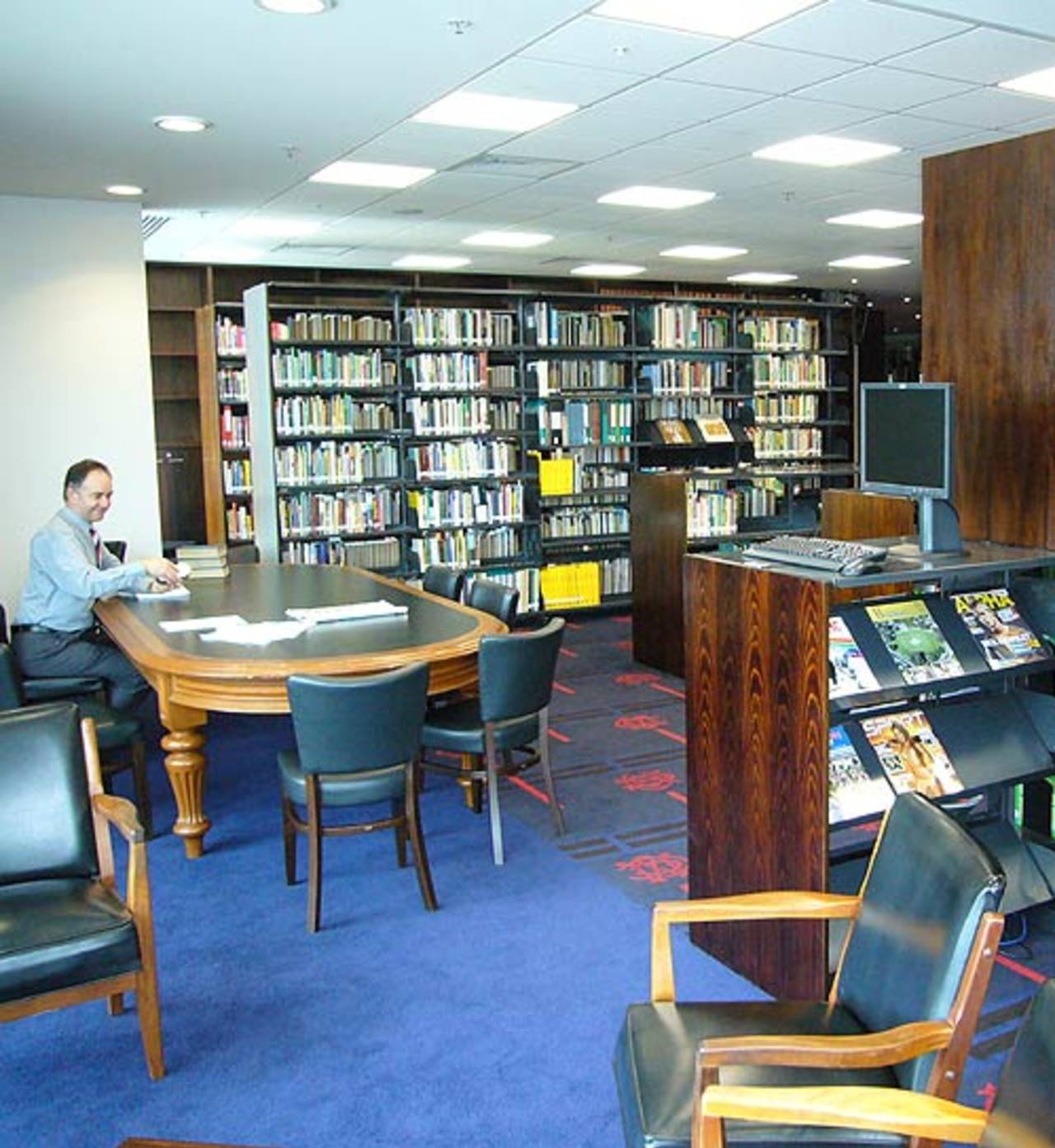In my
last post, I wrote of a kind of closure achieved on my return to India on reconnecting with the precious cricket magazines I had not had access to in the US. The gratifying nature of that journey back to the familiar found its roots in a very particular denial I had experienced in my first extended stint away from a land that played host to cricket and its players. Among the elements of that deprivation was the lack of access to a library with cricket books on its shelves.
Libraries in the US do, of course, carry books on cricket. But those libraries are rare and the books rarer still. Indeed, even to this day, even in the immigrant enclaves where one might expect to find a cricket magazine or two tucked away between the glossies that detail the latest escapades of Bollywood starlets, cricket books retain the status of the snow leopard: rarely sighted.
Matters were different back "home". There, I had possessed access to reasonably good collections of cricket books in a diverse assemblage of libraries: those at school, college, and larger ones open for membership to the general populace. Among these bibliotheques, two stood out: the British Council library, housed in the All India Fine Arts and Crafts Society building in Lutyens' Delhi, and the library run by a boarding school that I attended for my ninth and tenth grades.
I have previously
briefly written of the British Council Library and its role in entrenching the Anglo-Australian centrality of cricket in my mind, and indeed, even my old boarding school's library did much to reinforce this aspect of cricketing history: its cricket-book collection centred on glowing, sometimes hagiographic, profiles of English and Australian players, the Ashes, and tales galore of county cricket played on bucolic English grounds.
There was little chance thus, that I would not grow up with
a very distinct understanding of cricket's past and present, given this bookish indoctrination. To be sure West Indies, India, Pakistan, New Zealand, and that mysterious creature South Africa, also showed up in these pages, but more often than not, the references were to help set off and enhance the glory of their English opponents. (Cricket writing often seemed to follow the pattern of another subject I have retained a childhood interest in, military history, where the gallantry of the "enemy", whether Napoleon's Grand Armée or Zulus or Afghans best served to highlight English military excellence, tradition and rectitude.)
I was all too easily transformed into yet another subject of the cricket world's information order, a construction written on and described by English writers, whose yardsticks and understandings of cricketing excellence were understood and supposed to be those of the world's.
Among the most positive aspects of our modern understanding of the internet as a global library par excellence is the chance to restock the shelves with writing from all over the globe, from bloggers to professional journalists and writers, who have now made available to us an ever-growing corpus of great cricket writing that explores many previously hidden facets of the great game and its many local manifestations and histories. This process has been under way for a while; the availability of the internet's publishing and distribution facilities have greatly accelerated and facilitated it. Needless to say used-books sellers online have also greatly aided this process.
To return to the theme with which I began my post, my sense of deprivation from a cricket library first began to diminish when I began to gain access to the writing of the world's cricket fans on online fora. It did not, of course, diminish the pleasure of
hunting for, purchasing, and reading, cricket books on my travels to other cricketing countries or bringing back to the US
my old collections. But to quote the after-work drinker, it certainly "took the edge off".
We, the readers, are privileged to be present at this time, as a new, global, cricket library is being put together before our eyes, and with it, a new understanding of cricket's past, present and future.
